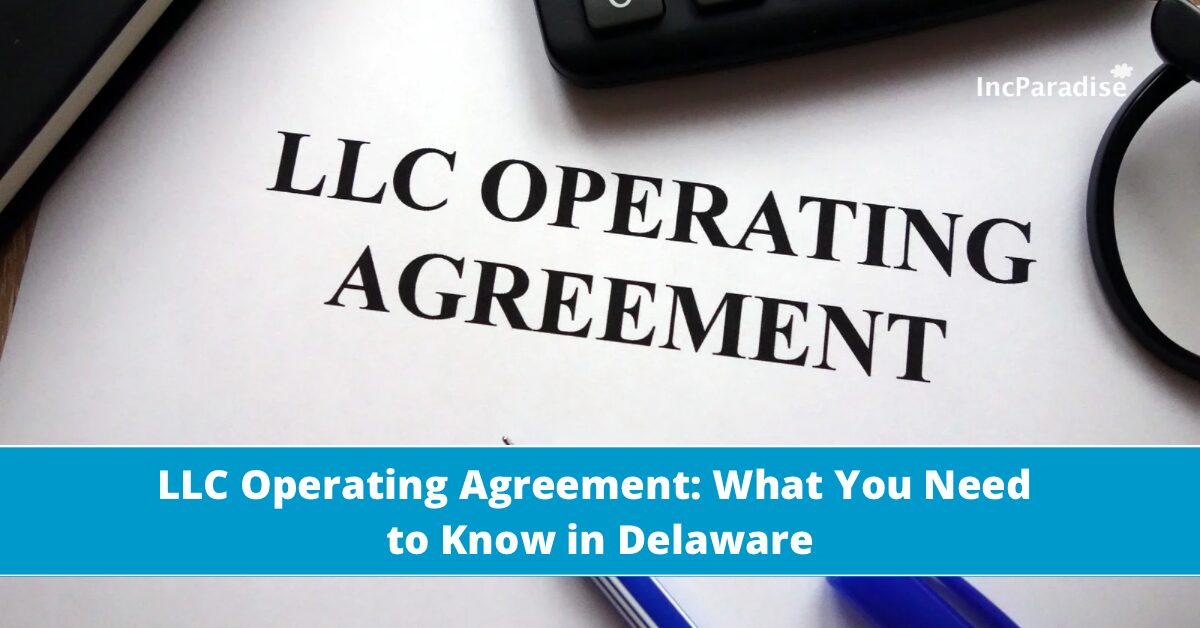Starting a business in Delaware provides many valuable benefits for business owners. More than 65 percent of all Fortune 500 companies and over half of the publicly trading companies in the USA are incorporated in Delaware. The benefits such as ease of doing business and asset protection offered by Delaware Laws and Courts are some of the few reasons for this positive business nature.
Regarding business taxes, Delaware has a Franchise Tax, Corporation Income Tax and Tax on LLC’s, Limited Partnerships and General Partnerships. Based on your business legal structure each tax will be applicable. Also, if your business income passes through you personally, then that income is subject to your personal tax return.

Franchise Tax
Franchise Tax is applicable to both S Corporation and C Corporation. This tax is calculated based on two methods i) Authorized Share Method and ii) Assumed Per Capital Value Method
1. Authorized Share Method
Based on the number of authorized shares your Corporation should pay a flat fee as below:
5,000 shares or less = $175 fee
5,001 to 10,000 shares = $250 fee; and
10,000 or more shares = $250 base fee + $85 (for tax years 2018 and later) for each additional 10,000 shares.
For Example:
If your Corporation has 20,000 shares then your annual franchise tax will be approximately $335 ($250 + $85).
2. Assumed Capital Value Method
This method is calculated based on all the issued shares, total authorized shares, and total gross assets.
Step 1 – Calculate your Assumed Par Value = Total Gross Assets / Total Issued Shares and round the result to 6 decimal places.
Step 2 – Discover your Real Par Value: The actual Par Value of your Corporation share assigned in your Certificate of Corporation.
Step 3 – To calculated Assumed Par Value capital the following three conditions should be considered:
Condition a) For all shares in which Real Par is less than Assumed Par, multiply the number of such shares by Assumed Par.
Condition b) For all shares in which Real Par is greater than Assumed Par, multiply the number of such shares by Real Par.
Condition c) For all shares in which Real Par is equal to Assumed Par, multiply the number of such shares by Real Par.
Step 4 – Calculate the Assumed Par Value Capital by Step 3
Step 5 – Calculate Franchise Tax = Divide Assumed Par Value Capital by 1,000,000 and multiply the result with $400
For Example:
If a Corporation has Total Gross Asset value as $500,000, the total issued shares as 9,000,000 and the total authorized shares as 10,000,000 with a real par value $0.0002. Calculate your assumed Par Value
Calculate your Assumed Par Value = Total Gross Assets / Total Issued Shares
Assumed Par Value = $500,000 / 9,000,000 = $0.055556 per share
Real Par Value = $0.0002 per share
Note: Since the Real Par Value is less than the Assumed Par Value, multiply the Total authorized shares by Assumed Par to find Assumed Par Value Capital (Condition (a) in Step 3).
Assumed Par Value Capital = Assumed Par Value x Total Authorized Share
Here: $0.055556 x 10,000,000 = $555,560 ( Since this number is less than 1,000,000, we do not need to round up.)
Calculate Franchise Tax = Divide Assumed Par Value Capital by 1,000,000 and multiply the result by $400
Calculate Franchise Tax = $555,560 / 1,000,000 = $0.00056 x 400 = $222.2
Since the minimum tax is $400 and the calculated Franchise tax is below the minimum tax the Corporation will pay the minimum tax of $400.
Corporation
Delaware Corporations need to pay both the Franchise Tax and its Corporation income tax. Delaware corporation income tax is calculated at a tax rate of 8.7% of total taxable income from the corporation.
For Example:
If your Delaware Corporation has a net taxable income of $120,000 and authorized shares of 20,000, your corporation should pay a Corporation income tax of $10440 (8.7% of 120,000). And Franchise Tax ( Calculated using Authorized share method) will be approximately $335 ($250 for 10000 shares + $85 for each additional 10000 shares).
S Corporation
S Corporations don’t have any separate federal tax but they require you to pay Franchise tax. Since S Corporations are treated as pass-through entities the income will be passed through each individual shareholder and they will be subjected to pay their individual federal income tax.
For Example:
If your S Corporation has a taxable income of $120,000 and authorized shares of $20,000. your Corporation has to pay a Franchise tax of $335 ($250 for 10000 shares + $85 for each additional 10000 shares). The remaining net income will be passed through each individual shareholder and they will be subjected to pay their individual federal income tax based on their overall income of the year.
LLC or Limited Liability Company
LLC’s also don’t have any Federal income tax and they need to pay a flat annual tax of $250. The remaining net income is passed through each individual LLC member and they will be subjected to pay their individual federal income tax based on their overall income of the year.
For Example:
If your LLC ( which has a default classification as a Partnership) has an annual net income of $120,000, your LLC will owe an annual tax of $250 and the net income will be passed through each LLC member and they will be paying their individual tax returns for their overall income of the year.
Partnership
Partnerships both General and Limited are required to pay an annual tax of $250. The remaining net income will be passed through each individual partner and they will be subjected to pay their individual federal income tax based on their overall income of the year.
For Example:
If your Partnership business has an annual net income of $120,000. Then, you will be paying a general partnership annual tax of $250 and the net income will be passed through each partner and they will be paying their individual tax returns for their overall income of the year.
Sole Proprietorship
For Sole Proprietors, the income from your business will be distributed and you will pay your individual tax to the state.
Disclaimer:
Please note that we are not legal or tax experts, this Delaware business tax guide is prepared as a general information only and should not be considered as legal or replace any other tax or professional advice. We strongly advise you to consult a tax or legal expert for your Delaware business tax preparation. For further guidance, you can also check the Delaware Division of Corporations website.








